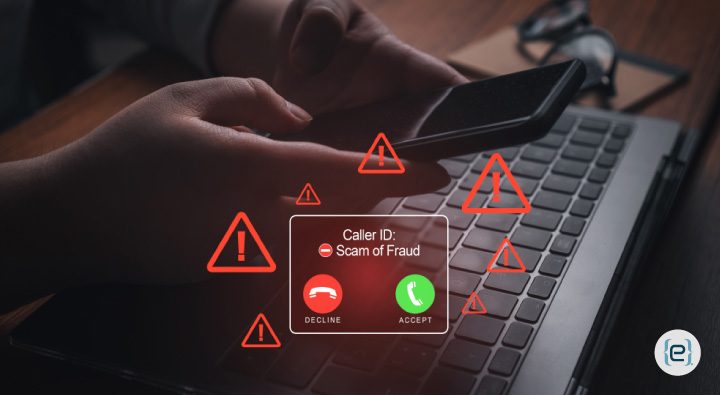Yesterday, as I was elbow-deep in leftover spaghetti, prepping lunch for work, my phone lit up with that all-too-familiar “similar-to-local” number. Normally, I’d let it ring, but after helping a client recover from a gift card scam last week, I felt a little extra salty. So, I picked up. What followed was just another round in the never-ending game of scam calls—something you, me, and just about everyone else has experienced.
The Scam That Started It All
My journey into the wild world of scam calls began in 2019, when my grandfather lost $3,000 to someone posing as “Windows Support.” Hearing the shame in his voice was a gut punch I’ll never forget. That experience made me determined to understand how these scammers operate and, more importantly, how to stop them. Not what I expected to do with my marketing degree, but here we are—life has a funny way of redirecting us.
Now, dealing with scammers is practically a morning ritual. Coffee? Check. Email? Check. Waste a scammer’s time for 20 minutes? Double check. My coworkers think I’m nuts, but there’s something deeply satisfying about keeping these predators busy so they can’t target someone more vulnerable—maybe your own family or friends.
When Even the Savvy Get Caught
Let’s be real: nobody’s immune. Last summer, after a long workday, I nearly fell for a scam myself. The caller ID showed my bank’s actual name, and the caller knew the last four digits of my card—likely from a data breach. For a moment, I believed him. What saved me? He got agitated when I insisted on calling back using the number on my card. That was the clue I needed to hang up.
Turns out, these scammers are getting more sophisticated. They use data from breaches, social media, and even AI-powered tools to make their calls more convincing. It’s not just about tech support scams anymore; they’re targeting your emotions and your personal life.
Inside the Mind of a Scammer
Once, I kept a scammer on the line so long he dropped the act and started chatting about his “job.” He was working from a cramped office, following a script he barely understood. For a second, I almost felt bad for him—until I remembered my grandfather and the countless others who’ve been hurt by these schemes.
Their tricks are endless. My favorite? The “Department of Legal Affairs” (not a real agency) needing me to buy $500 in iTunes gift cards to help catch a money launderer. When I asked if the money launderer was a big Apple fan, the line went dead. Humor can be a powerful shield.
Why We Fall for Scams
Scammers prey on human instincts—fear, greed, the desire to help, or even just politeness. My friend Dave, who’s as skeptical as they come, nearly got taken by a fake IRS call because they threatened him with arrest. Fear makes us act fast and think slow. That’s why awareness and quick thinking are your best defenses.
- Ask Odd Questions: Throw them off script by asking about their breakfast or personal life.
- Reverse the Pitch: Try selling them something—nothing confuses a scammer more.
- Put Them on Hold: Say you need to “grab your wallet” and see how long they’ll wait.

When It Gets Personal
Humor aside, sometimes these calls cross the line. Last month, a scammer called with my child’s name and school info—likely scraped from social media—trying to pull a kidnapping scam. That’s when the games stop. I filed police reports, notified the school, and locked down our social profiles. The threats are real, and they’re evolving.
Scam technology is advancing, too—think AI-powered voice cloning, number spoofing, and automated response systems. It’s like something out of a cyberpunk novel, except the villains are after your wallet, not world domination.
Fighting Back—and Winning
Some days, I make a game out of it: how many wild stories can I invent before the scammer hangs up? My record is 12 minutes explaining why my pet llama needs Medicare coverage. But the real win is when friends or clients tell me they avoided a scam because of something I shared.
Want to protect yourself and your community? Start with these basics:
- Never share sensitive info over the phone unless you initiated the call.
- Verify caller identity using official numbers from your bank or service provider.
- Be skeptical of urgent requests for gift cards, wire transfers, or personal details.
- Educate your loved ones, especially seniors, about common scams.
- Use robust cyber security solutions to help block fraudulent calls and protect your data.
The Future of Phone Fraud—and How to Stay Ahead
Scams are getting personal. Criminals scrape your social media, build detailed profiles, and even impersonate family members. Just yesterday, someone tried to scam my mom by pretending to be me—and they referenced my recent trip to Chicago, thanks to Instagram. This is next-level social engineering.
At eMazzanti, we see these threats every day. Our mission is to help you stay ahead of the latest scams, whether it’s through phishing awareness training or advanced technology solutions. We believe that protecting your business and family starts with education and vigilance.
Why This Matters—For You and Your Community
Every time I string along a scammer, I think about my grandfather, my neighbors, and the elderly lady at my church who lost her savings to a “Microsoft engineer.” This isn’t just about avoiding scams—it’s about protecting your community from predators who exploit trust and kindness.
Nobody is immune, not even your most tech-savvy friends. The key is to balance healthy skepticism with living your life. Sometimes, being the “scam call guy” gets old, but every time someone thanks me for helping them avoid a scam, it’s all worth it.
Stay vigilant, stay informed, and remember: if someone calls claiming to be from the FBI’s “Bitcoin Investigation Unit,” put them on hold—forever. And if you want to level up your defenses or educate your team, contact eMazzanti today to learn how we can help keep you safe from the latest threats. Your security is our top priority—let’s fight back together.






